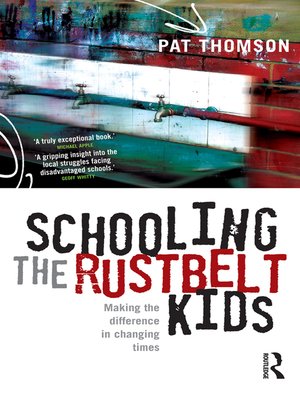
Sign up to save your library
With an OverDrive account, you can save your favorite libraries for at-a-glance information about availability. Find out more about OverDrive accounts.
Find this title in Libby, the library reading app by OverDrive.



Search for a digital library with this title
Title found at these libraries:
| Loading... |
'A truly exceptional book.' - Michael W. Apple, University of Wisconsin, Madison
'A gripping insight into the local struggles facing disadvantaged schools and a compelling account of the injustice of their place in the bigger picture.' - Professor Geoff Whitty, Director, Institute of Education, University of London
Schools in disadvantaged areas are struggling in the current economic and political environment. Like schools everywhere they are being asked to do more with less, but they face more obstacles.
In recent years education policy has shifted from a holistic approach to learning to a focus on narrow educational outcomes: spelling, reading and writing. Thomson shows that this approach penalises disadvantaged schools and argues that educational and social disadvantage are inextricably linked in children's everyday lives.
Examining primary and secondary schools in disadvantaged areas in a post-industrial ('rustbelt') city, Schooling the Rustbelt Kids reopens the debate about inequality in schooling. It provides concrete evidence that typical government policies in the Western world are not working, and that they are helping to create a permanent underclass. Thomson outlines an alternative whole of government approach to policy, which builds on those school programs that do make a real difference to educational outcomes.
Thomson also emphasises the influence of local geography. Schools are coloured by particular neighbourhoods, permeated by national and global events, and tangled in complex networks of social relations. Interventions which work in one school may not work in others.






